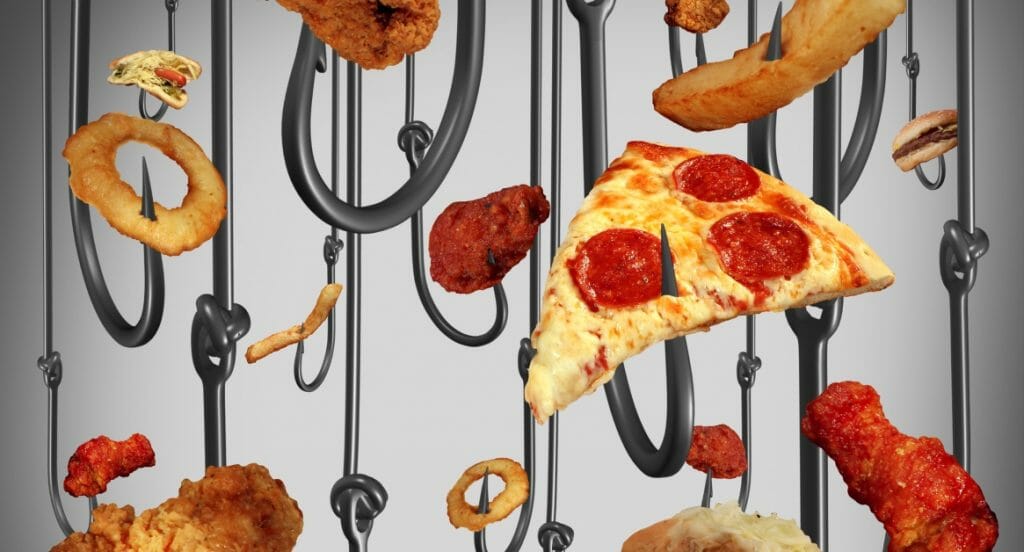When you want to eat, can you discern if the desire is coming from hunger or appetite?
It’s a common issue, especially in our culture of food abundance!

While having enough food to eat is a blessing, it requires a higher level of discernment in your eating habits.
Why?
Many cues exist that ”feed” our appetites, from the food establishments on the corner, to the food commercials on TV in the evening, or even seeing our favorite snack foods in the cabinet.
What is a person to do?
The first thing to do is discover if your desire to eat is coming from hunger or appetite.
Here is why you want to determine this before eating: Many of us have learned to interpret ANY bodily discomfort as hunger.
So if you often eat for reasons that have nothing to do with hunger, then your weight can suffer, which can lead to chronic sickness and disability over time.
Here are some guidelines to help you discern whether the desire to eat is coming from hunger or appetite.
True Hunger
For clarity, true hunger is defined as ”A feeling of discomfort in the stomach area caused by lack of food, coupled with the desire to eat.”
So in order, here is the checklist to help discern true hunger:
- Lack of food
- A feeling of discomfort in the stomach area
- A desire to eat
All 3 must be present for true hunger, in that order.
The next time you feel a desire to eat, ask yourself, “Is this REALLY hunger I am feeling or something else?”
If you haven’t eaten in an hour or more and lack of food is really the issue, then EAT.
However, if you just ate an adequate amount and you still crave more food, then it’s time to take a hard look at your habits and food choices.
So it’s important to ensure that the majority of the foods you eat support a healthy body and brain.
These are foods as close as possible to the way God made them, such as vegetables, fruit, proteins – like fish, meat, beans, etc, healthy fats – avocado, seeds, nuts, and carbohydrates – wild or brown rice, sweet potatoes, quinoa.
If lack of food is not driving your desire to eat then accept that, while you want to eat, that desire is not coming from hunger.
Real Appetite
Appetite is defined as a ‘strong desire or liking for something.’
So a craving for a specific food drives appetite.
If you want to eat but would refuse an apple if someone offered it to you, then your desire to eat is likely coming from appetite.
When the desire to eat comes, be willing to explore what’s really going on inside of you:
1.Place your hands on your stomach and close your eyes. Is the feeling of discomfort coming from there? If it is, then eat healthy, filling foods rich in protein, fiber or healthy fats in the right amount for you.
2. If the discomfort is coming from elsewhere, such as from a headache, muscle tension, or discomfort elsewhere in your body, then address the discomfort at the source, such as take a hot bath, massage the muscles, stretch, or do tension release exercises.
It’s amazing how much pain and discomfort in our body is simply a symptom of chronic muscle tension. So having regular check-ins with your body daily to relax and release tension is essential.
3. Ask the Lord in prayer for what is causing your feelings of discomfort at that moment.
- Is it an emotion that you want to avoid feeling, such as anxiety or boredom?
- Are your food choices themselves triggering pain from inflammation, muscle tension, or causing emotional instability? Sugar, junk foods, and simple carbohydrates are big culprits here.
When I ate a lot of inflammation-causing foods, I felt hungry all the time too!
These steps will feel weird and wrong at first, but that’s only because you’ve programmed your brain to believe that when the desire to eat comes, that is a command to go get something to eat.
It doesn’t. Desire is just a suggestion.
I repeat: Desire to do something does not translate into a command! You have the power to decline the suggestion and go in a different direction.
You can program your brain to think differently through renewing your mind (see Romans 12:2).
The Bible says that it takes faith and patience to inherit God’s promises (Hebrews 6:12).
Key components of faith in this area are to:
- See your identity as a fit, healthy person – one who exercises self-control with her daily eating habits
- Believe that change is possible according to God’s word.
Patience is walking out your new identity day-by-day through the power of the Holy Spirit.
Will it be a struggle? Yes.
But struggle is good.
After all, struggle is defined as ”to make forceful or violent efforts to get free of restraint or bondage.”
If your appetite has you in bondage, then any efforts you make to get free are good.
May the Lord bless you on this path to freedom!
Be Blessed with Health, Healing, and Wholeness,
Kimberly Taylor
Author/Christian Life Coach of the Take Back Your Temple Weight Loss Community
P.S. Do you struggle with overeating sugar? If so, you are not alone!
Overcoming sugar addiction was a key factor on my weight loss journey; I lost 85 pounds and dropped from a size 22 to an 8.
In our 14-day Sugar Detox Challenge online course (inside the Take Back Your Temple Community), you’ll get the same success strategies and support to gain peace in your eating habits and achieve lasting weight loss.
Click here to learn more about the Take Back Your Temple Christian Weight Loss Community.

0 comments